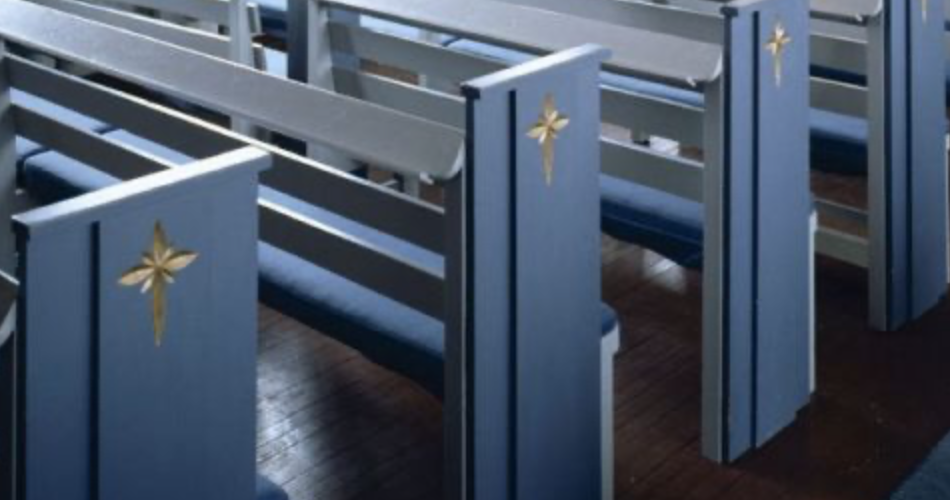The share who are say that they have no religious affiliation by political ideology in 2018.
Conservative: 9.8%
Leans Conservative: 13%
Moderate: 21.7%
Leans Liberal: 30.5%
Liberal: 43.6% pic.twitter.com/h182b4DfaK— Ryan Burge 📊 (@ryanburge) May 9, 2020
As researchers have been noting for several decades now, the active practice of a religious faith — especially traditional forms of faith — is one of the easiest ways to draw a line between political and cultural conservatives and people who consider themselves liberals or progressives.
This has obvious implications for clashes between Democrats and Republicans, no matter what the insiders and activists say and do while on camera at national political conventions.
If you want to review some “pew gap” basics, click here for a file of GetReligion material on the topic or head over here for a recent post — “Concerning Republicans, Democrats and gaps in pews“ — by political scientist Ryan Burge of the Religion in Public blog (and a contributor here at GetReligion).
Religious “nones” and other skeptics skew liberal and, thus, favor the Democratic party. Meanwhile, religious believers — especially white Christians who attend worship once a week or more — have increasingly flocked to the other side of the political aisle.
So what else could researchers do to chart this fault line in American political life?
Well, if you spend much time in the Twitter-verse, you know that lots of people in blue and red zip codes have radically different takes on the whole religion thing. This leads us to a fascinating think piece Burge wrote the other day for Religion News Service entitled, “By their tweets you will know them: The Democrats’ continuing God gap.” Here is some material drawn from the overture:
Despite being a party that includes Black Protestants, who are some of the most religious Americans, and Hispanic Catholics, one of the few religious groups in the U.S. to be growing, Democrats still have troubles when it comes to talking about faith.
They have struggled to mobilize the religious left into a voting block and have troubles connecting with white Christian voters, the majority of whom supported President Trump in the last election.
And while Democrats do have the support of the so-called “Nones” — the growing group of Americans who have no religious affiliation — that group does not include particularly enthusiastic voters. …
While the Nones have grown dramatically over the last 20 years, it’s still important to realize that more than six in ten Americans identify as a Christian, according to the 2018 Cooperative Congressional Election Study.
If Democrats want to win back the White House, it would behoove them to reach out to those Christian voters.
This may not be an easy task for the kinds of high-octane Democrats who seek the presidency. This becomes rather obvious if — as Burge did — a researcher digs into the contents of “a total of 58,851 tweets” by the 20 candidates who qualified for the early debates, so long ago.
Democrats tend to be quite vague. Some are not even fond of using the term “God.” Consider this chart that Burge used with that RNS piece:

Note that the candidates who felt the most comfortable with God language — at least in social media — were no the frontrunners.
As it turns out, this set of Democratic candidates were much more likely to tweet about Islam than they were Christianity.
What happened when Burge searched this vast library of quotes for explicitly Christian language?
If at least 60% of Americans have a belief in Jesus Christ (including Catholics, Protestants, Orthodox, and Mormons), one would assume that mentioning Jesus in a tweet would appeal to a large swath of the electorate. However, those mentions are nearly non-existent.
There were several mentions of Jesus, but not in a specifically religious context. For instance, Andrew Yang tweeted that he once saw Depeche Mode in concert in 1990 when the opening act was Jesus and Mary Chain. Another was John Hickenlooper posting a picture of Carrie Underwood singing “Jesus Take the Wheel.”
In total, I found four tweets that mentioned Jesus in an explicitly Christian context out of over 58,000. There were two from Mayor Pete Buttigieg and two from Rep. Tulsi Gabbard.
Now, Twitter Democrats are not ordinary Democrats — #DUH.
Still, in one of his recent tweets, Burge (a progressive northern Baptist pastor, by the way) noted that the religious makeup of the party has been evolving.
— Ryan Burge 📊 (@ryanburge) August 24, 2020
Note that the number of Democrats who are from the old Mainline Protestant denominations, and also Catholic parishes, has fallen just as much or more as those who are evangelicals.
The “nones” have soared into power, obviously. However, it’s also important to note the consistent presence of Democrats who attend historically Black Protestant denominations. I believe, in this chart, that African-Americans who self-identify as evangelicals or Pentecostals were included in the “evangelical” category.
So what is happening among this crucial part of the Democratic coalition? Of course, Burge has a chart on that, as well. The news there is intriguing and, for reporters who cover religion and/or politics, worth following.
There is some evidence that black people 45 and under who go to church weekly have drifted a bit from the Democratic party.
And there was a noticeable defection away from Clinton among young, religiously active black voters in 2016. pic.twitter.com/n8X4se9GDb
— Ryan Burge 📊 (@ryanburge) May 1, 2020
You will want to read all of this RNS piece by Burge and, of course, follow him on Twitter.










